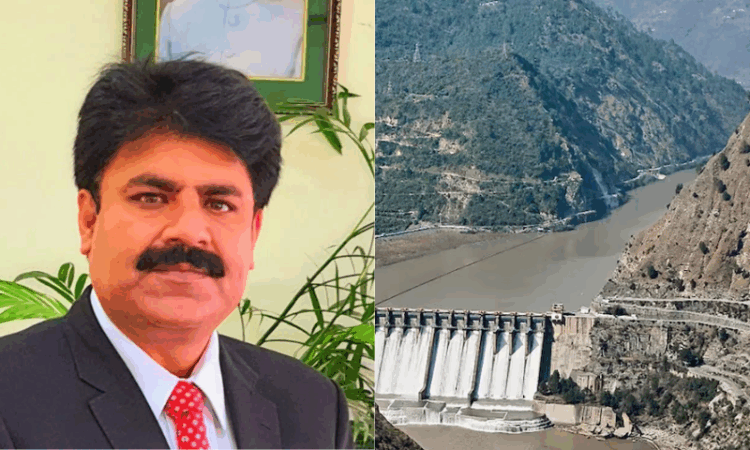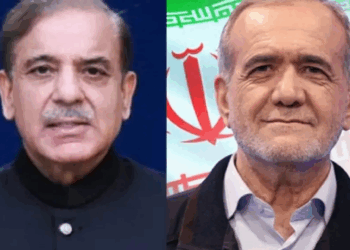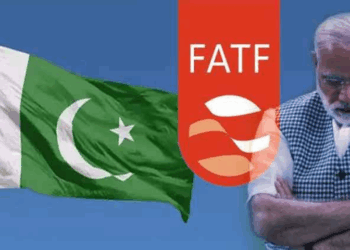By Hafiz Ahsaan Ahmad Khokhar, Advocate Supreme Court & Renowned Constitutional and International Law Expert
India’s continued hostility towards Pakistan, marked by repeated violations of bilateral and international obligations, is imperative to examine recent developments concerning the Indus Waters Treaty (IWT) and the strategic suspension of the Simla Accord. Both instruments are foundational to the legal and geopolitical relationship between the two countries, and under international law, Pakistan’s position remains principled, well-founded, and defensible.
Indus Waters Treaty, signed in 1960 by India and Pakistan with the World Bank as a guarantor, is a binding international agreement. The Treaty allocates control of the eastern rivers (Ravi, Beas, Sutlej) to India and grants Pakistan rights over the western rivers (Indus, Jhelum, Chenab), subject to certain limitations. Importantly, Article XII of the Treaty explicitly provides that it “shall not be terminated except by agreement of both the Governments,” rendering any attempt at unilateral withdrawal legally void and internationally untenable.
Treaty includes no provision allowing unilateral withdrawal by either party. The only legally permissible options are its continuation, or its amendment or termination through mutual consent. This underscores a critical legal reality: while the Treaty allows for negotiated reform, it unequivocally prohibits unilateralism. Any Indian assertion or action suggesting a unilateral exit from the Treaty stands in direct violation of its express terms and the principles of international law.
This is not the first time India has threatened to disrupt or unilaterally abandon the Indus Waters Treaty. On several occasions, Indian officials have made provocative declarations regarding the diversion of water flows legally allocated to Pakistan—acts that Pakistan has rightfully regarded as hostile and tantamount to a declaration of war. In response, Pakistan’s National Security Committee (NSC) has consistently issued strong, evidence-based rebuttals, characterizing such moves as grave violations of international law and serious threats to regional peace and stability. The NSC has reiterated Pakistan’s commitment to responding through legal, diplomatic, and strategic channels in a manner consistent with both constitutional and international norms.
India’s ongoing attempts to bypass or undermine the Treaty’s framework clearly violate international legal obligations. Given the World Bank’s role as a third-party guarantor, the multilateral character of the Treaty is further emphasized. Accordingly, Pakistan has multiple avenues available under international law to challenge India’s conduct, including the Treaty’s built-in dispute resolution mechanisms, recourse to the International Court of Justice, and other international arbitration forums.
Pakistan must adopt a proactive legal strategy to defend its water rights. This includes invoking the dispute resolution provisions in Annexures F and G of the Treaty—whether by appointing a neutral expert or initiating proceedings before a Court of Arbitration. In view of India’s repeated infractions, Pakistan is also justified in engaging the United Nations and calling upon the World Bank to ensure adherence to the Treaty’s stipulations.
Suspension of Simla Accord by Pakistan both legally justified and diplomatically strategic. For decades, India has misused the Agreement to block international attention to the Kashmir issue, insisting on exclusive bilateralism. However, India’s unilateral revocation of Article 370 of its Constitution, its demographic engineering in Indian-Occupied Jammu & Kashmir, and its continuing human rights violations has rendered the bilateral mechanism defunct.
The suspension of the Simla Agreement reactivates the jurisdiction and relevance of the United Nations Security Council resolutions on Kashmir. These resolutions explicitly call for a plebiscite to allow the Kashmiri people to determine their political future. By suspending the Agreement, Pakistan is no longer legally restricted to bilateral avenues and can reinternationalize the Kashmir dispute, placing it firmly back on the global diplomatic and legal agenda.
The core reason for the deterioration in Indo-Pak relations lies in India’s aggressive and destabilizing behavior—including orchestrated false flag operations, disinformation campaigns, and state-sponsored terrorism targeting Pakistan. Incidents like the Pulwama attack and the Balakot airstrikes, widely viewed as politically motivated provocations, exemplify India’s belligerent approach to regional security.
Pakistan’s legal position on both the Indus Waters Treaty and the Kashmir issue is firmly rooted in international law. The international community—particularly the World Bank and the United Nations—must play a more active role in holding India accountable. Meanwhile, Pakistan must continue its legal advocacy, strategic diplomacy, and principled resistance to safeguard its sovereignty and ensure regional peace.
Pakistan is on strong legal footing with respect to the Indus Waters Treaty and that the suspension of the Simla Agreement represents not only a lawful response but also a necessary strategic shift. These steps demonstrate Pakistan’s firm resolve to confront India’s escalating hostilities with constitutional clarity, legal integrity, and international legitimacy.








